American households have become much wealthier over the past 25 years, but far fewer estates now pay the estate tax. In 2021, this tax was imposed on only one in every 1,300 estates, or less than 0.1 percent of estates of people who died that year.
In contrast, in 1972, approximately 6.5 percent of estates owed estate tax, and that percentage fell to just 2.1 percent by 1997.
This stunning decrease is largely the result of changes to federal tax laws, which raised exemption thresholds over the years. Consequently, household net worth has more than doubled, from roughly $47.5 trillion in 1997 to $139 trillion in 2021.
The overwhelming majority of estates remain below the threshold at which the estate tax kicks in. In short, the wealth tax only applies to the wealthiest estates, so most Americans’ growing wealth will escape estate taxation.
This change carries important implications for government revenue and wealth inequality. As fewer estates pay the tax, federal revenue from the estate tax has dropped markedly over the decades, despite overall wealth growing significantly.
Growing Wealth, Shrinking Tax Base
In the last two decades, net worth for American households has seen incredible growth. Household wealth has more than doubled for many families, even as overall income inequality has become larger.
Even with these increases, research from organizations like Brookings shows that the share of estates that are subject to the federal estate tax has nose-dived.
Whereas in the early 1970s approximately 6.5 percent of decedents’ estates were subject to the tax, today only about one in every 1,300 estates pays estate tax at all.
This dramatic decrease means that even while many Americans are creating wealth, the transfer of that wealth at death is heavily undertaxed.
How Federal Tax Law Changes Contributed to This Trend
Researchers say that is largely due to a series of changes in federal tax law over the past half century. Big legislative changes, increasingly friendly to wealthy families, have inched that exemption threshold upward and out of the reach of many estates. The last significant overhaul was the Tax Cuts and Jobs Act of 2017.
That law also more than doubled the estate tax exemption, allowing estates of up to nearly $14 million per person (or around $28 million for a married couple) to pass to heirs tax-free.
This allows many rich people to pass huge amounts without hitting the 40 percent top rate, in practice “erasing” the estate tax for all but the biggest fortunes.
Why Are Only A Few Households Paying Estate Tax?
It was theTax Cuts and Jobs Act(TCJA) that dramatically increased the estate tax exemption amount. Simply put, an individual might have been taxed on estates exceeding about $5.49 million in 2017.
Under the TCJA, that exemption more than doubled (to approximately $11.18 million in 2018) and is expected to increase to about $13.99 million in 2025.
That so few estates owe the estate tax is instead a consequence of legislation that excludes (the ultra-wealthy) families from it.
Some critical features of the TCJA, including this high exemption limit, are due to expire at the end of this year. If they expire, the exemption could shrink to about$7 million (inflated to pre-2018 levels) by 2026, bringing more estates into the taxable range.
But the Trump administration and Republican lawmakers are working to extend these provisions, which could help maintain a higher exemption.
Rising Wealth Inequality Leads to Lower Government Revenue
But many experts warn that, as transfers of wealth expand, wealth inequality might worsen. Because Baby Boomers and other older generations are expected to transfer about$100 trillionby 2048, there will be fewer families that end up paying estate tax. That means wealth could stay concentrated in a handful of very rich households, further widening the inequality gap.
There are implications for government revenue, too. The estate tax used to account for more of federal revenue, 0.4 percent of GDP in 1972 vs. 0.08 percent in 2021. As fewer estates are taxed, less revenue flows to the government.
If you need additional revenue, some experts have suggested lowering the exemption limit at which estate taxes are implemented. This reform could catch more estates within the tax net and possibly raise the money available for public expenditure.





